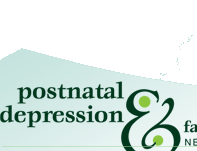 |
 |

|
|
|

LITHIUM FACT SHEETThis information is not a replacement for full discussion of risks and benefits with your doctor.Other Names: Lithium carbonate, Priadel. Principal Uses: Prophylaxis and treatment of mania/hypomania/bipolar disorder, recurrent depression/bipolar depression, augmentation (to increase effect ) of antidepressants, some protection against antidepressant-induced hypomania. Dose: Comes in 250mg and 400mg. Start at lower dose and aim for plasma levels between 0.6-1.2mmol/l (bloods for levels taken ~12hrs after last dose-usually in the morning) Doses of 800mg- 1500mg/day usually needed. Cost: Fully subsidised. Some Possible Side effects: Minimal side effects for many people. Tend to be related to plasma level. Mild gastrointestinal symptoms can occur initially-usually this passes. Can be dangerous in overdose. Interactions: Diuretics and non-steroidal anti-inflammatory medications increase Lithium levels Other interactions are possible with Carbamazepine, SSRIs, ACE inhibitors, Angiotensin 2 antagonists, cardioactive drugs (digoxin, diltiazem, verapamil ), haloperidol and alcohol discuss with your doctor. Use in Pregnancy: Category D There is a positive evidence of human foetal risk, but the benefits from use in pregnant women may be acceptable despite the risk (e.g., if the drug is needed in a life-threatening situation or for a serious disease for which safer drugs cannot be used or are ineffective). Use in breast feeding: Category L4 |
Home | About us | Baby | Books & Links | Contact Us | Culture | Fact Sheets | Family/Whanau | Fathers | Glossary | Medical Info | Medications | Post Natal Depression | Pregnancy | Q&A | Related Conditions | Stories | Support | Treatments |